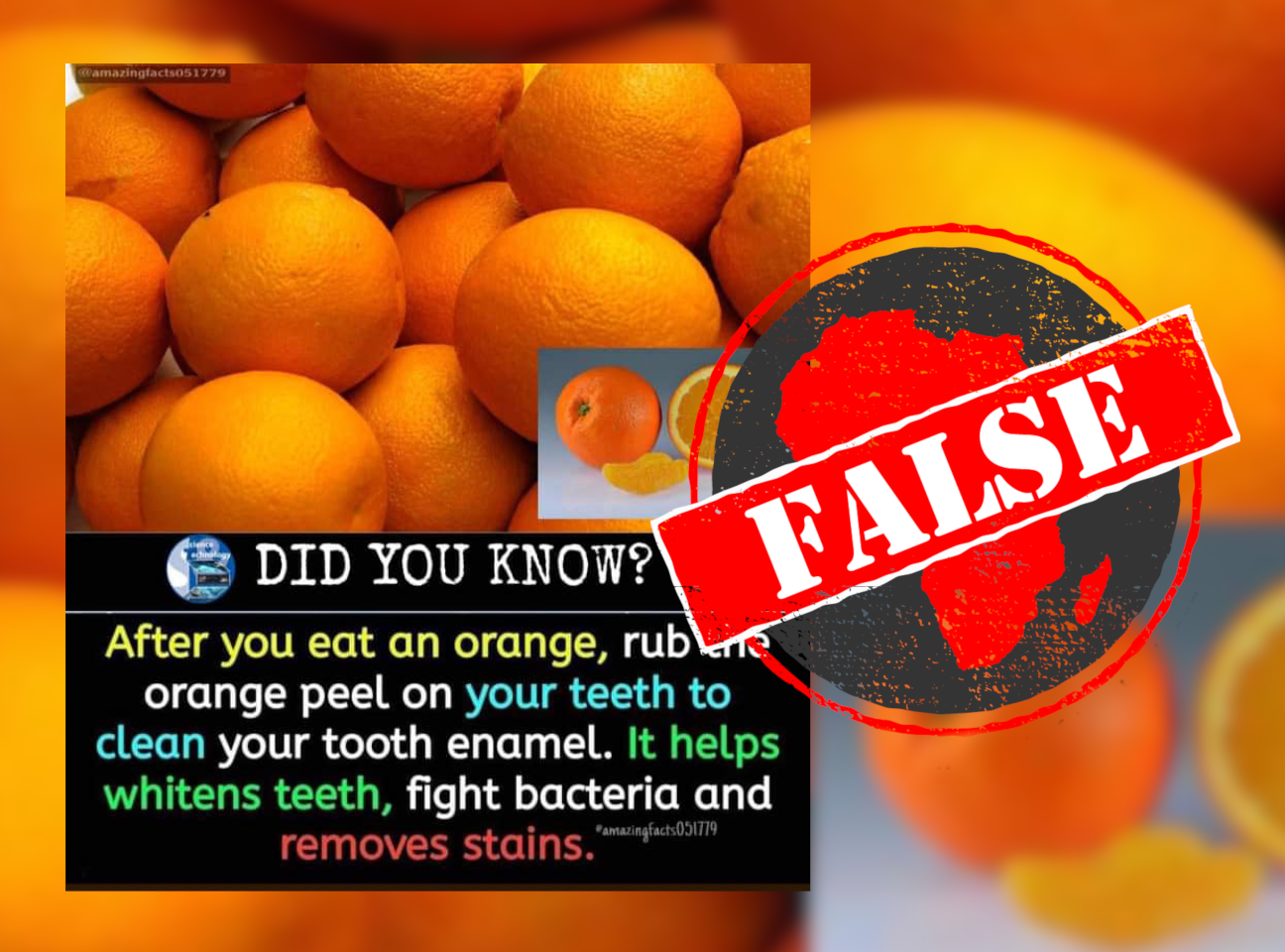With just over 60,000 views in 24 hours, a graphic posted on Facebook gives odd advice for looking after your teeth.
“Did you know?” it asks. “After you eat an orange, rub the orange peel on your teeth to clean your tooth enamel. It helps whitens teeth, fight bacteria and removes stains.”
Several different versions of the graphic, with different photos but the same claim, are also doing the rounds on Facebook. Another post says orange peel should be rubbed on the teeth “before going to bed at night as a remedy for yellow teeth”.
What’s going on here? Does orange peel clean tooth enamel, whiten teeth, fight bacteria and remove stains?

Oranges among fruit with highest acidity
Taking care of our mouth and teeth can seem like a mindless everyday task, but neglecting them can lead to tooth decay and gum disease, says the US National Institute of Health.
And acidic food and drink with pH levels lower than 7.0 can be particularly harmful, according to Colgate, a US multinational that makes a toothpaste brand of the same name. The lower the pH, the more acidic the foodstuff.
The pH scale is a measurement of how acidic or basic something is. Its scale goes from pH 0 (most acid) to pH 14 (most basic). In the middle is pH 7, or neutral.
The UK’s Oral Health Foundation, an independent oral health charity, says that oranges and their peels are among the more acidic foods, with pH levels of around 3 to 4.
‘Continuous exposure to acid erodes dental enamel’
Dr Shehnaaz Kolia, a dentist at the general dental practice unit of Wits University in Johannesburg, South Africa, told Africa Check that “this is not something I’ve come across or recommended for my patients or even students to advise patients”.
Kolia added that the unit’s dentists don’t recommend blanket approaches to oral health care “because every individual has very personalised oral health contributors”.
“Oranges, and orange peels are acidic and that continuous exposure to acid erodes dental enamel creating sensitivity and other problems,” Kolia said.
“For this reason alone, I would not recommend it to the general public for unsupervised use as excessive use will be detrimental to the teeth and potentially oral health, especially in an uninformed user.”
The graphic’s advice could also be overused. For that reason, it would be better for people to seek proper dental care to fix any issues, Kolia said.
Other Wits University experts agreed. Dr Doctor Mpho Molete, a lecturer in community dentistry, and Dr Zandiswa Gulube, an oral microbiologist, said proper dental care should be the first choice.
“I personally feel that proper dental care is more appropriate,” Gulube said. “I have never come across any study on the effect of orange peel on de/remineralisation or antimicrobial effect of enamel.”
Molete said: “There is no scientific evidence that orange peel on your teeth cleans enamel, whitens teeth, fights bacteria and removes stains.”
Republish our content for free
For publishers: what to do if your post is rated false
A fact-checker has rated your Facebook or Instagram post as “false”, “altered”, “partly false” or “missing context”. This could have serious consequences. What do you do?
Click on our guide for the steps you should follow.
Publishers guideAfrica Check teams up with Facebook
Africa Check is a partner in Meta's third-party fact-checking programme to help stop the spread of false information on social media.
The content we rate as “false” will be downgraded on Facebook and Instagram. This means fewer people will see it.
You can also help identify false information on Facebook. This guide explains how.


Add new comment